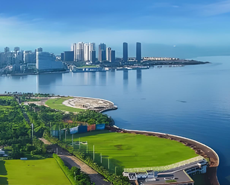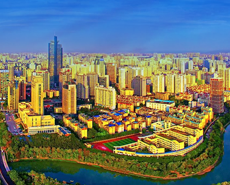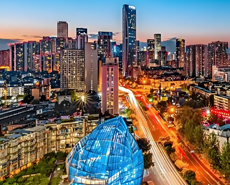
High-quality calcined bauxite supply tightens further
----Interview with Liu Haijian
President
CMP Tianjin Co., Ltd.
President
CMP Tianjin Co., Ltd.
CMP, founded in 1993, is an enterprise committed to providing Chinese high-quality minerals to worldwide customers.
Asian Metal: Mr. Liu, could you please introduce your company's history, production scale and main products briefly?
Mr. Liu: CMP, a European company, has been running for 22 years in China and owns eight large mineral processing plants and one mine. The plant, near Tianjin port, is the largest processing plant of refractory minerals in Asia. Its products include high-aluminum refractory grain sand, calcined bauxite, mullite, kaolin, flint clay, brown fused alumina, dead burned magnesia, silicon carbide, graphite flake, spherical foundry sand and ceramsite sand.


Asian Metal: It is heard that your company's newly-built high-aluminum calcined bauxite production line in Guizhou has realized mass production, so could you please introduce the advantages of the products made in Guizhou?
Mr. Liu: CMP Guizhou Co., Ltd., a subsidiary of CMP, mainly conducts mining, calcining and processing of calcined bauxite, and formally performed mass production of high-aluminum calcined bauxite 90%min using rotary kilns this May.
CMP Guihzhou has one environmentally friendly rotary kiln with the diameter of 3m*78m, which is a professional and automatic facility for production and processing of calcined bauxite with the largest diameter ratio in China now. CMP Guizhou can produce high-quality calcined bauxite and has achieved mass production of calcined bauxite 90%min using the rotary kiln at the moment. The average and highest bulk density of our calcined bauxite 90%min reaches 3.4g/cm³ and 3.55g/cm³ respectively due to high bulk density of bauxite in Guizhou. The calcined bauxite has good crystallization with calcination of 5-6 hours, so it can replace part of brown fused alumina to decrease costs during the production of refractory materials.


Asian Metal: Calcined bauxite prices fell back and producers saw limited deals in H1 2018 in spite of tight bauxite supply and frequently environmental inspections, so what's your opinion on this?
Mr. Liu: Chinese calcined bauxite prices did dip in H1 2018 mainly due to poor demand at home and abroad. On one hand, calcined bauxite producers could not run normally in Shanxi, Henan and other regions affected by comprehensive environmental inspections, and faced with environmental pressure, they witnessed higher production and operation costs for rectification; on the other hand, environmental inspections also restricted the production and output of refractory material and steel companies, leading to dim end demand. In addition, because of sharp fluctuation in raw materials' prices and supply in 2017, Chinese and overseas buyers prepared large quantities of stocks, and as a result during the first half of 2018 they kept consuming those stocks and made fewer new purchases. To sum up, calcined bauxite prices edged down amid sparse transactions in H1 2018.
Asian Metal: What's your company's output of calcined bauxite in H1 2018?
Mr. Liu: CMP Tianjin, with an annual capacity of 300,000t of calcined bauxite and one-third operating rate, produced about 60,000t limited by weak demand in the first six months of this year.

















